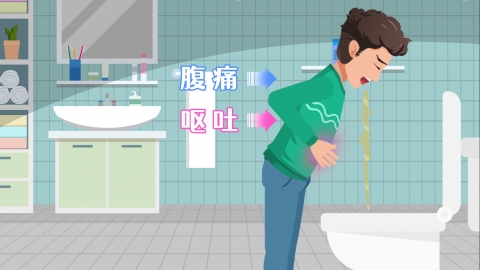What causes vomiting of yellow bile?
In general, vomiting bile may be caused by improper diet, strenuous exercise, indigestion, bile reflux gastritis, cholecystitis, and other factors. Symptomatic treatment such as general management and medication may be needed. If physical discomfort occurs, medical attention should be sought promptly to avoid delaying treatment. The detailed analysis is as follows:

1. Improper Diet
Irregular eating habits, overeating, or consuming excessive greasy or spicy foods can increase the gastrointestinal burden, leading to bile reflux, which may be accompanied by symptoms such as stomach discomfort and bloating. It is recommended to adjust dietary habits, eat more light and easily digestible foods, avoid greasy and spicy foods, maintain regular eating patterns, avoid overeating, and chew food slowly.
2. Strenuous Exercise
During intense physical activity, blood flow is redirected toward muscles, reducing blood supply to the gastrointestinal tract and weakening digestion. When excessive stomach acid and bile accumulate in the stomach, they may be expelled through the vomiting reflex. Avoid overeating before exercise, gradually return to a resting state after exercising, avoid lying down or engaging in other vigorous activities immediately afterward, and stay hydrated and rest appropriately.
3. Indigestion
If one habitually eats improperly or consumes excessive gas-producing foods, the digestive system may become overloaded, causing symptoms such as nausea, vomiting, and yellow bile discharge, as well as bloating and belching. It is recommended to use medications that promote gastrointestinal motility under a doctor's guidance, such as domperidone tablets, Jianwei Xiaoshi tablets (digestive aid), and mosapride citrate tablets, to help digestion and relieve vomiting symptoms.
4. Bile Reflux Gastritis
Reduced pyloric tone or sphincter dysfunction may induce bile reflux gastritis. Components in bile, such as bile salts, can damage the gastric mucosa, causing symptoms such as nausea and vomiting. Vomit often contains yellow-green bile and may also be accompanied by upper abdominal pain, bloating, heartburn, and other symptoms. It is recommended to follow medical advice to use medications such as sucralfate tablets, omeprazole sodium enteric-coated capsules, and ranitidine hydrochloride capsules to alleviate symptoms.
5. Cholecystitis
Cholecystitis may be induced by various factors such as biliary obstruction and pathogen invasion. Inflammation causes thickening of the gallbladder wall and narrowing of the gallbladder cavity, preventing bile from being excreted normally. Accumulated bile can create a high-pressure state, easily refluxing into the stomach and causing vomiting. This is usually accompanied by right upper quadrant abdominal pain, fever, chills, and other symptoms. It is recommended to follow medical advice to use medications such as diclofenac sodium tablets, clindamycin hydrochloride capsules, and anti-inflammatory bile-promoting tablets to alleviate symptoms.
During treatment, adequate rest should be ensured to avoid excessive fatigue, and maintaining a positive mindset can aid in recovery.
References
[1] Wang Lihua. Clinical Observation of Integrated Chinese and Western Medicine in the Treatment of Bile Reflux Gastritis [J]. Journal of Practical Traditional Chinese Medicine, 2025, 41(01): 87-89.
[2] Liu Bo. Popular Science on Gallstones and Cholecystitis [N]. Medical and Health Care Newspaper, 2024-12-19 (014).





